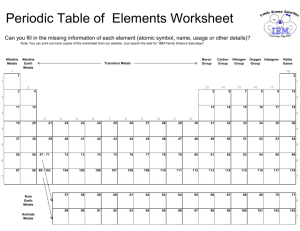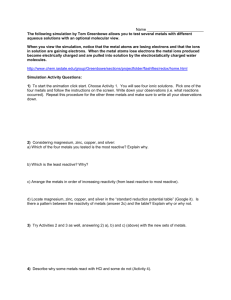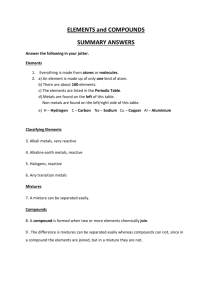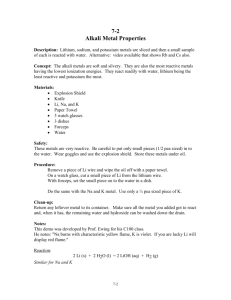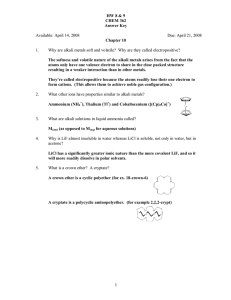Metals and nonmetals
advertisement
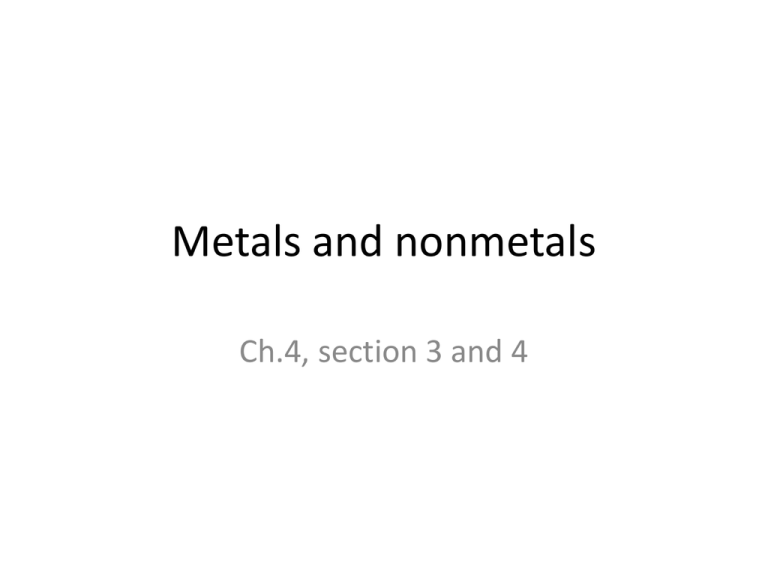
Metals and nonmetals Ch.4, section 3 and 4 Alkali Metals (group 1) • • • • React with other elements by losing one electron. Very reactive Found only in compounds Some are shiny and so soft that you can cut them with a plastic knife. • Sodium and potassium are the two most important alkali metals. (important for life) • Lithium, sodium, potassium, Rubidium, Cesium, Francium Alkaline Earth Metals (group 2) • Fairly hard, gray-white, and a good conductor of electricity. • Lose two electrons in reactions • Not as reactive as group 1, but are still very reactive. • Two most common alkaline metals are magnesium and calcium. • Beryllium, magnesium, calcium, strontium, barium, radium Transition metals (groups 3-12) • • • • Good conductors of electricity Many from colorful compounds Less reactive than groups 1 and 2 Some are important to your health. (you would not survive without iron) • Most noticeable: gold, silver, copper, iron, nickel. Metals in mixed groups (groups 13-15) • Are not as nearly as reactive as the metals on the left side of the periodic table. • Most common are tin and lead. Lanthanides (below the table) • Soft, malleable, shiny with high conductivity. • Mixed with common metals to make alloys. • Alloy is a mixture of a metal with at least one other element, usually another metal. Actinides (below the table) • Below the lanthanides • Only actinium, thorium, protactinium, and uranium occur naturally on Earth. Families of non-metals The carbon family: - Each element can gain, lose, or share 4 electrons when reacting with other elements. - G-14: only carbon is a nonmetal. - Carbon is important in the chemistry of life. - - compounds are made of long chains of carbon. - Carbon, silicon, germanium, tin, lead Nitrogen family (group 15) • Contains 2 nonmetals. (nitrogen and phosporus) • Usually gain or share 3 electrons in reactions. • Nitrogen makes up 80 % of the atmosphere. • Is a form of diatomic molecule. Consists of 2 atoms. (N2) • Nitrogen, phosphorus, arsenic, antimony, bismuth Periodic Table . • . rows Patterns of properties columns
